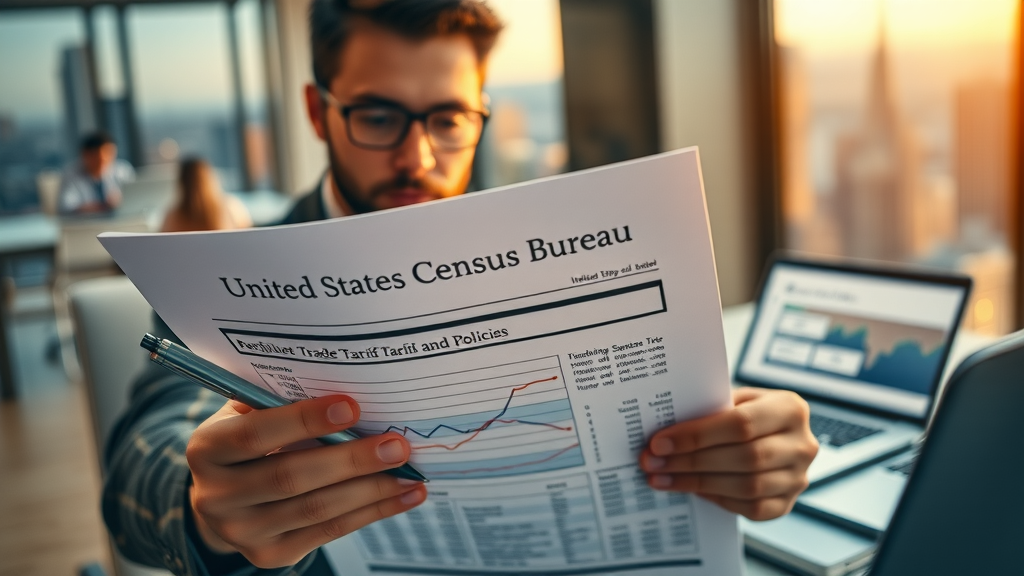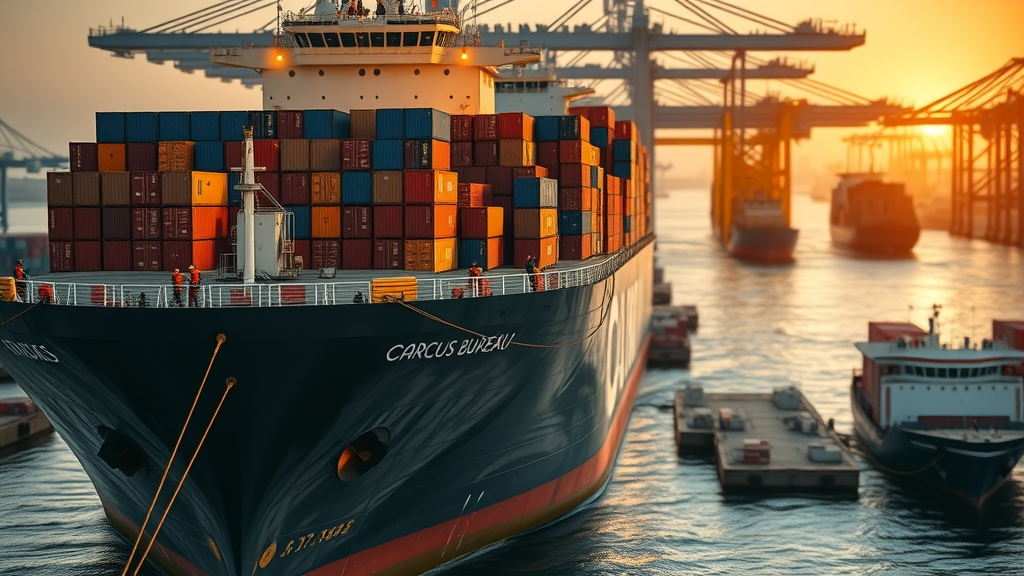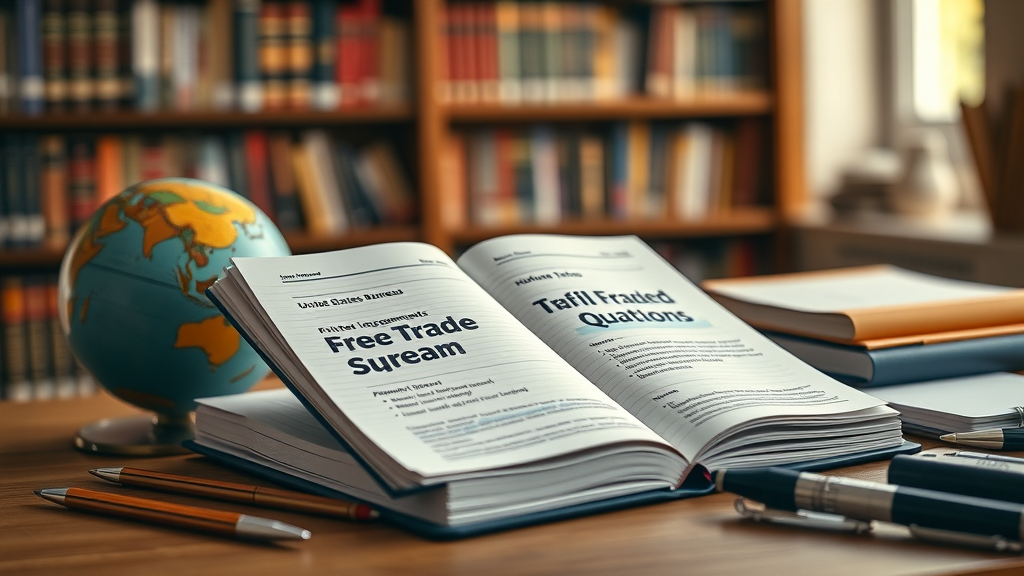Have you ever wondered how businesses transcend borders and thrive on a global scale? The secret lies in mastering international trade strategies. This guide will uncover the pivotal role that international trade plays in business growth and its undeniable impact on global economic prosperity.
Why International Trade is Essential for Business Growth
International trade is an indispensable element for business growth, offering companies access to new markets, diverse customer bases, and increased revenue opportunities. By engaging in trading globally, businesses can leverage their absolute advantage, where they can produce goods more efficiently compared to competitors. This helps meet the insatiable consumer demand for goods and services worldwide.
Furthermore, with the advent of technology, businesses can easily navigate complex international markets, enhancing their competitive edge. The strategic application of comparative advantage allows companies to focus on producing goods or services where they are most efficient, thus optimizing resources and maximizing profits.

Captivating Inquiry: The Role of International Trade
In the realm of international trade, questions often arise about its true significance. Does international trade actually foster economic development, or does it serve narrow interests of specific corporations? Researchers argue that the wealth of nations is closely tied to active participation in global trade, which promotes innovation, enhances productivity, and ultimately boosts the gross domestic product of countries involved.
Navigating the Complexities of International Markets

Successfully navigating international markets requires a thorough understanding of international market dynamics and trade policies. Businesses must stay informed about the trade agreement stipulations, tariffs, and outright bans that can impact their operations. When strategizing, they should consider external links to government's official website for the latest updates on policies and trade restrictions that might affect their market entry plans. For more insights on trade regulations, visit the Global Trade News Blog.
Key Aspects of International Trade Strategies
Understanding Tariffs and Trade Policies
- Free Trade Agreements (FTAs)
- Tariff Rate Quotas (TRQs)
- Most Favored Nation (MFN) Treatment

Tariffs and trade policies are fundamental components of international trade strategies. They dictate the import of goods and govern how raw materials are traded. Firms that can adeptly navigate these policies by leveraging free trade agreements typically enjoy easier access to markets, reduced trade barriers, and the potential for increased profits. For a deeper understanding of trade compliance, explore the differences between UKCA Marking vs CE Marking.
The Impact of Technology on Trade

Technology plays a crucial role in modern international trade by facilitating seamless transactions and enabling real-time communication. The integration of digital platforms and automated systems allows businesses to more efficiently handle logistics, manage international payments, and ensure compliance with trade regulations. These technological advancements are pivotal for maintaining a competitive lead in fast-paced global markets.
Leveraging Free Trade Agreements
Free trade agreements are powerful tools that help eliminate trade barriers and establish favorable conditions for imports and exports. By capitalizing on these agreements, businesses can significantly reduce costs, mitigate risks associated with foreign exchange fluctuations, and enhance their trade and investment activities globally. Successful navigation of these agreements can also foster strong partnerships with trading partners, fostering long-term economic prosperity.
The 3 Types of International Trade
Import and Export: A Dual Approach

Import and export operations form the backbone of international trade. By importing consumer goods and raw materials not locally available, businesses can meet domestic market demands. Conversely, by exporting locally produced goods and services, they can expand their markets, thus driving economic growth and strengthening their international market presence.
The Significance of Re-exports
Re-exports, or the act of exporting previously imported goods, are significant in global trade strategies. They enable businesses to benefit from trade agreements, often allowing for the re-distribution of goods with minimal tariffs, thereby optimizing supply chains. This mechanism is crucial for states like Hong Kong, where re-exportation is a common practice.
Exploring Careers in International Trade
High Demand International Trade Jobs
"The field of international trade offers diverse career paths ranging from trade compliance to logistics management, each playing a vital role in the global market ecosystem." – Industry Experts

Careers in international trade are in high demand, fueled by growing globalization. Jobs such as international logistics manager, trade analyst, and compliance officer are critical in ensuring the smooth operation of trade activities. These roles require a deep understanding of trade regulations, negotiation strategies, and the ability to build global relationships, thereby supporting businesses in achieving their trade objectives.
The Main Purpose of International Trade
Enhancing Economic Prosperity
The fundamental purpose of international trade is to elevate economic prosperity by optimizing resource allocation through comparative advantage, promoting specialization, and encouraging innovation. Trade typically leads to a richer variety of goods and services available in domestic markets, contributing significantly to the quality of life and economic strength of a country.
Boosting Global Relationships
International trade not only impacts economic aspects but also serves as a bridge for building diplomatic relationships among nations. Through trade agreements and partnerships, countries can foster mutual understanding and cooperation, thus paving the way for peace and stability in the global arena. For an example of how international finance can influence trade, consider reading about Qatar's $1 Billion Fund of Funds.

Terms of International Trade Explained
Key Trade Terms and Their Meanings
A clear understanding of trade terminology is essential for anyone involved in international business. Terms such as "incoterms," which define trade transaction criteria, and "trade deficit," indicating the difference between imports and exports, are pivotal in making informed trade decisions and negotiating successful agreements.
How Terms Impact Trade Agreements
Trade terms dictate the responsibilities and obligations of trading partners. Misinterpretation can lead to disputes; hence, familiarizing with these terms ensures smoother negotiations and effective management of trade agreements.
What You'll Learn from This Guide
- Understanding the critical role and benefits of international trade.
- Key strategies and policies in international trade.
- Career opportunities and growth in the trade industry.

Frequently Asked Questions
What are the 3 types of international trade?
The three primary types of international trade include export, import, and re-exports. Each serves a unique function in facilitating global commerce and economic growth.
What are international trade jobs?
Jobs in the international trade sector include roles such as trade analyst, logistics manager, and international compliance officer, each vital to ensuring efficient global trade operations.
What is the main purpose of international trade?
The main purpose of international trade is to enhance economic growth, improve living standards by expanding market choices, and foster strong global partnerships.
What is meant by terms of international trade?
Terms of international trade refer to the agreed conditions under which trading transactions occur, including pricing, delivery, and payment terms. These terms are crucial for maintaining clarity and predictability in trade agreements.

Conclusion
Summarizing Key Points on International Trade Strategies
Mastering international trade strategies is essential for any business aiming to grow globally. Businesses should educate themselves on trade policies and agreements while leveraging technology for optimal trade outcomes.
Encouraging Further Exploration and Engagement
Visiting official trade websites and remaining informed about current policies will aid businesses in making educated decisions to successfully navigate international markets.
Call to Action
Explore More Resources on International Trade
Stay informed and ahead in the global market by accessing extensive resources on international trade. Visit the [Commerce Department](https://www.commerce.gov/) and its official affiliates for more insights.
 Add Row
Add Row  Add
Add 




Write A Comment